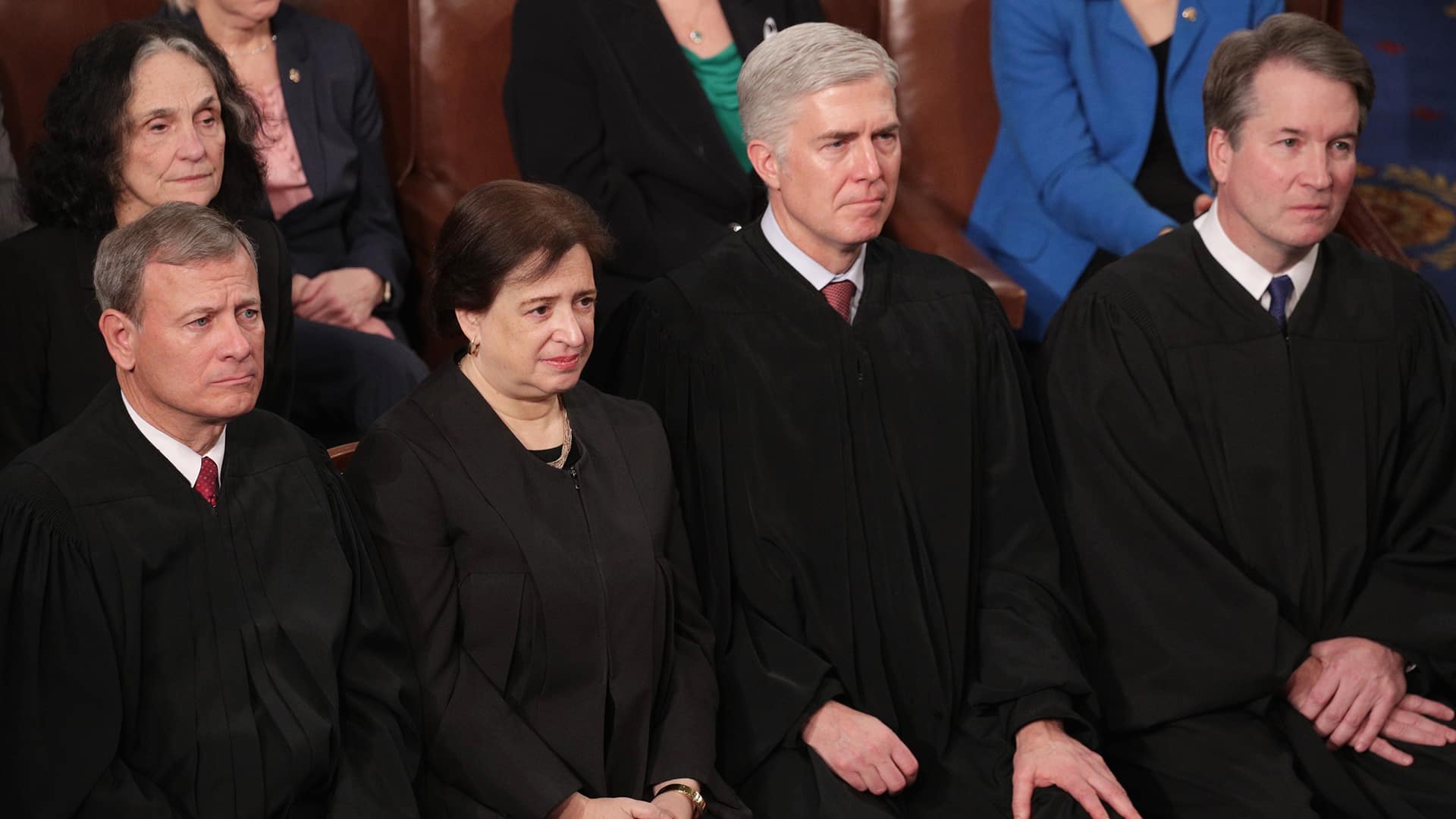OPINION: This article may contain commentary which reflects the author's opinion.
The Supreme Court has stepped in on a case involving a Georgia election law that is alleged to harm black voters.
It temporarily stopped an election in Georgia on Friday, reviving the ruling from a federal judge that said that the state had disadvantaged black voters in violation of the Voting Rights Act, The New York Times reported.
In an unsigned order without noted dissents, the justices wrote that an appeals court’s reason for staying the judge’s ruling — that it had come too close to the election in November — was flawed because state officials had told the judge that there was enough time to make the required adjustments. The Supreme Court vacated the stay and returned the case to the appeals court for reconsideration.
The court’s order was an exception to what legal experts say is a growing trend: a near-categorical ban on late changes to state election procedures even when those changes have been ruled necessary to address illegal infringements of the right to vote. But the exception was based on an unusual concession from state officials and therefore may not have larger implications.
The case concerned elections for the Georgia Public Service Commission, which sets utility rates and has five members. A 1998 law divided the state into five districts, with one commissioner representing each. But the commissioners continued to be elected in statewide elections.
About a third of Georgians are Black, but Black voters are in a majority in District 3, which is made up of counties in the Atlanta metropolitan area. Four Black voters from that district sued to challenge statewide elections for commissioners, saying the practice violated the Voting Rights Act by diluting their power to elect candidates of their choice.
The Supreme Court agreed with the appeals court which said that Secretary of State Brad Raffensperger “applied a version of the Purcell principle that respondent could not fairly have advanced himself in light of his previous representations to the district court that the schedule on which the district court proceeded was sufficient to enable effectual relief as to the November elections should applicants win at trial.”
The Secretary of State said he would not “make an appeal based on Purcell.”
“Under the Purcell principle, courts should not change election rules during the period of time just prior to an election because doing so could confuse voters and create problems for officials administering the election. The principle takes its name from Purcell v. Gonzalez, in which the Supreme Court reversed an October 2006 decision of the U.S. Court of Appeals for the 9th Circuit blocking an Arizona voter ID law during that year’s midterm election,” SCOTUS Blog said.
And last week it was reported that the North Carolina Supreme Court may be set to put the brakes on a constitutional amendment that would require voters to produce a valid ID before casting a ballot.
According to a Friday report, the state’s highest court ruled 4-3 along party lines that the requirement, which was added to the North Carolina constitution in 2018 via amendment, could be invalid because the GOP majorities in the state legislature were allegedly the result of unconstitutional racial gerrymandering.
The high court’s ruling did not overturn the amendment, which voters ratified that year, but the justices did send the case back down to a lower court for further review.
“In the final week of the final regular legislative session preceding the 2018 general election, a General Assembly that was composed of a substantial number of legislators elected from districts that the United States Supreme Court had conclusively determined to have resulted from unconstitutional racial gerrymandering enacted legislation presenting six constitutional amendments to North Carolina voters,” Justice Anita Earls wrote for the Court’s Democrat-appointed majority, The Daily Wire reported.
The outlet adds:
The two amendments at issue in the case were the voter ID amendment, as well as another amendment preventing the state income tax from ever being raised above 7%. The amendments were passed by a three-fifths majority of both chambers of the legislature; but the voter ID amendment only passed by two votes in the state House of Representatives and three in the Senate; the tax cap amendment passed by just one vote in the House and four votes in the Senate. In the general election in 2018, both amendments were ratified [by] a majority of voters.
At the same time, a federal court ruling found that nearly 30 legislative districts were illegal racial gerrymanders; 100 of the state’s 170 legislative seats had to be redrawn, the Associated Press reported. Judges allowed the state legislators elected in 2016 to serve their two-year terms. But in 2018, using redrawn legislative maps, voters in the state broke Republican supermajorities in both houses, the Raleigh News & Observer added.
State Republican leaders were outraged by the ruling.
“Four Democratic justices have all but thrown out the legitimate votes of millions of North Carolinians in a brazen, partisan attempt to remove the voter ID requirement from our Constitution and deny the people the ability to amend their own Constitution,” state Sen. Paul Newton, a Republican who co-chairs the Senate Redistricting and Elections Committee, said in a press release, the News & Observer reported.
“This is a direct attack on our democratic form of government from the most activist court in the state’s history,” he added.
